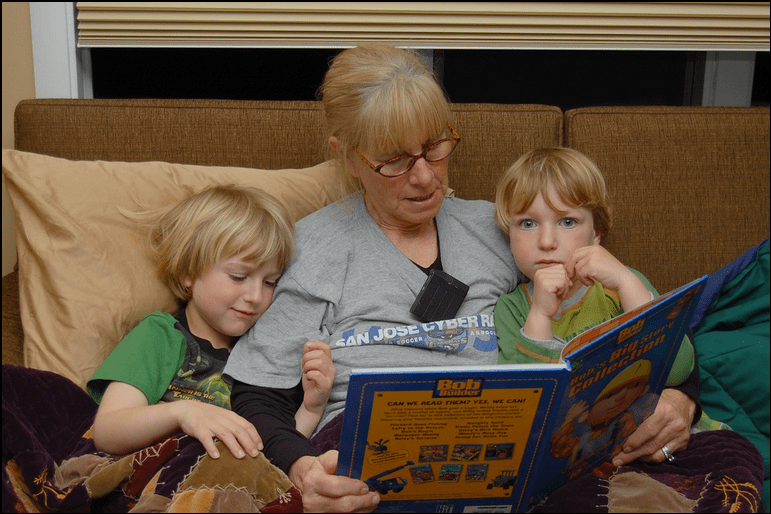Advertisement
The Grandma Effect: A Little Caregiving Sharpens Brain, A Lot Dulls It

There's an old saying in medicine: "The dose makes the poison."
Personally, I find the adage holds true in many contexts, from nutrition to exercise to parenting: often too much of a good thing turns toxic.
Here's the latest twist: A new report finds that grandmothers who care for their grandkids once a week experience a boost in mental sharpness. But if that one day of cozy caregiving expands to five or more days a week, it can put grandma on edge, and her brain can grow duller, with more memory and other cognitive problems.
Here's what the researchers conclude, from the abstract:
The data suggest that the highest cognitive performance is demonstrated by postmenopausal women who spend 1 day/week minding grandchildren; however, minding grandchildren for 5 days or more per week predicts lower working memory performance and processing speed. These results indicate that highly frequent grandparenting predicts lower cognitive performance.
And here's more info on the study (via news release) published online in the journal Menopause:
Taking care of grandkids one day a week helps keep grandmothers mentally sharp, finds a study from the Women's Healthy Aging Project study in Australia...That's good news for women after menopause, when women need to lower their risks of developing Alzheimer's disease and other cognitive disorders.
On the other hand, taking care of grandchildren five days a week or more had some negative effects on tests of mental sharpness. "We know that older women who are socially engaged have better cognitive function and a lower risk of developing dementia later, but too much of a good thing just might be bad," said NAMS Executive Director Margery Gass, MD.
The 186 Australian women, ages 57 to 68, took three different tests of mental sharpness and also noted whether they thought their own children had been particularly demanding of them in the last year. Among the 120 grandmothers, those who spent one day a week taking care of grandchildren performed best on two of the three tests. But those taking care of grandchildren for five or more days a week did significantly worse on one of the tests, which assesses working memory and mental processing speed.
That was a finding the researchers didn't expect. However, they also found that the more time grandmothers spent taking care of the grandchildren, the more they felt that their children had been more demanding of them, so maybe mood plays a role in the unexpected result. The investigators are already following up with more research.
Although other research has looked at the relationship between mental sharpness and being socially engaged, this is the first time that this type of research has looked at grandmothering. "Because grandmothering is such an important and common social role for postmenopausal women, we need to know more about its effects on their future health," says Dr. Gass. "This study is a good start."
